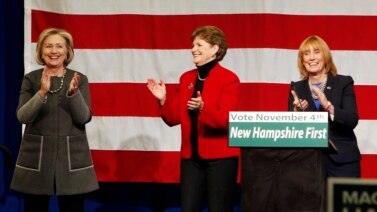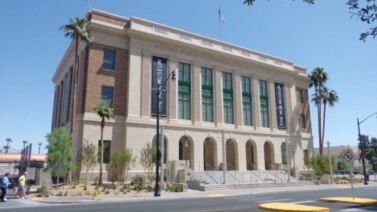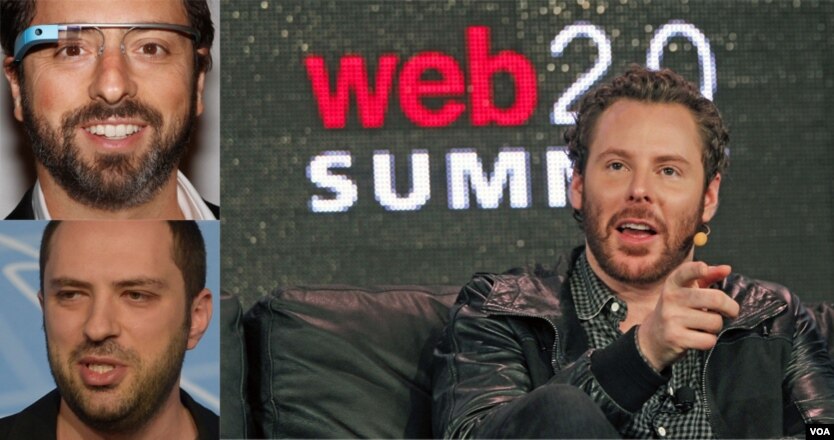
American philanthropists gave more money to charitable causes in 2014 than the year before. The journal Chronicle of Philanthropy says that the top 50 donors from the U.S. gave a total of $9.8 billion. That is an increase of 27 percent over the past year.
A major part of the increase came from Bill and Melinda Gates. They gave stock worth more than $1.5 billion to their Bill and Melinda Gates Foundation. Other major donations came from several entrepreneurs who made their money in the technology industry.
Three of these tech industry entrepreneurs and their families gave more than $500 million each in 2014.
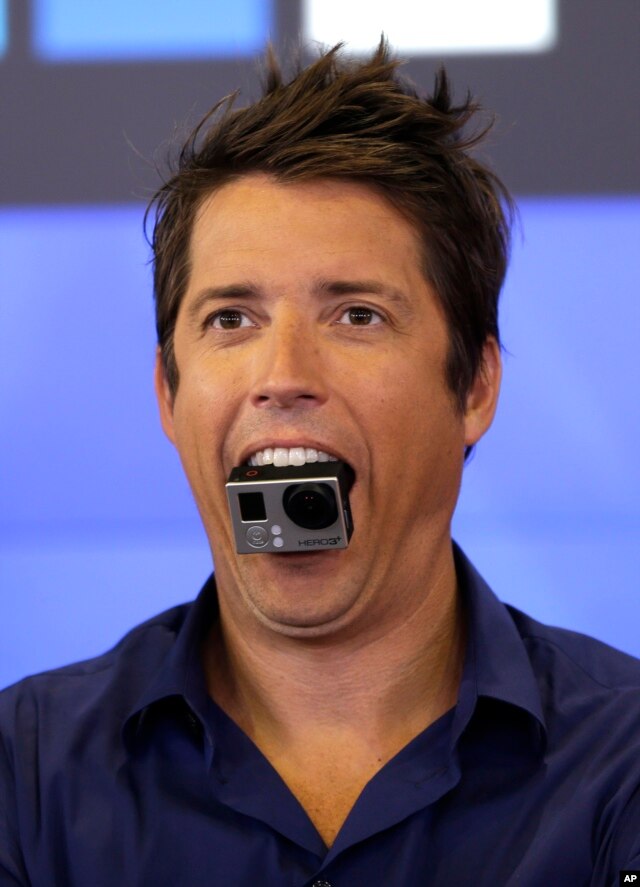
They are unusual not only because of the amount they gave, but for their age. The founder of the messaging company WhatsApp joined the ranks of major donors last year. Thirty-eight-year-old Jan Koum gave to the Silicon Valley Community Foundation. Sean Parker, founder of Napster and former president of Facebook, similarly gave over half a billion dollars to his own foundation and other charities. Nicholas and Jill Woodman, both under 40, are founders of the popular camera maker GoPro. They gave more than $500 million also to the Silicon Valley Community Foundation.
Other famous donors from the tech industry are also on the list. Sergey Brin, the 41-year-old co-founder of Google and Paul Allen who founded Microsoft with Bill Gates were among the top 10.
The changing faces of philanthropy
For decades, the San Francisco Bay area has been the heart of the computer technology industry. Many of the biggest technology companies have their headquarters in the area called Silicon Valley, after the silicon chips long used in computers. The area south of San Francisco is home to innovative computer technology and services companies and an investment center for risky start-up companies. But, the area has not always been associated with philanthropy.
Now, a new generation of entrepreneurs appears to be changing Silicon Valley. One example is Marc Benioff, a philanthropist who has called on wealthy donors to give more to their communities. Mr. Benioff is founder of Salesforce.com, a computer services company in San Francisco. Mr. Benioff has helped build a children’s hospital and given millions of dollars to non-profit foundations in the city.
Money from the technology industry has also started to change the face of philanthropy. Benjamin Soskis writes about the history and ideas behind philanthropy in America. His articles have appeared in The Atlantic magazine and a number of major publications. He says, traditionally, donors have given after they spent much of their lives building up wealth.
Usually philanthropists are in their 70s. But an increasing number of people appearing on the list of top donors are younger than 40 years of age. Benjamin Soskis says that is something new.
“There’s a whole new model that’s emerging in which people give and accumulate at the same time.”
Some of the young philanthropists on this year’s top 50 list have started to change in the way people see philanthropy. That is especially the case in the San Francisco area where the lines between philanthropy, giving money, and industrial capitalism, making money, appear to be coming together.
“I think it’s fair to say that philanthropy is now a part of the Silicon Valley identity.”
Big gifts get attention, but a small part of all charitable giving
There has been a movement among some big givers to persuade other industry leaders to give more to philanthropic causes. Bill Gates and Warren Buffet started the Giving Pledge campaign five years ago. They wanted more billionaires, like themselves, to give half of their money away. As of last May, the website for the effort says more than 120 individuals from at least 12 countries have joined.
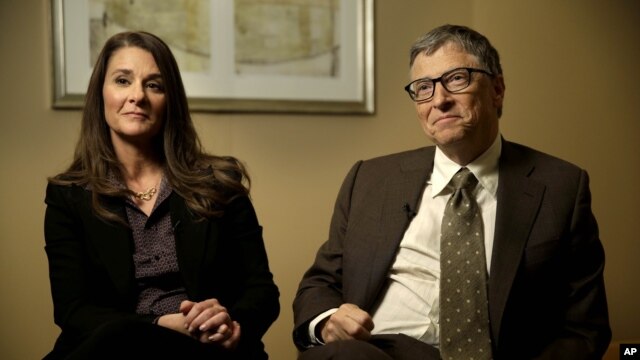
Benjamin Soskis says people often look at the total amount of philanthropic gifts. This year’s increase in big donations is notable.
“If you look at the jump, it’s partially the result of a number of very large donations from Bill and Melinda Gates, and a few other young tech entrepreneurs, but if you take a step back you can start to see some patterns. In the case of those gifts, many of them were not made to actual non-profit institutions that would spend the money on various social goods, a hospital or social service organization, they were donated to either to a foundation or a donor advised fund.”
But, the announcements of the gifts are only the beginning of the process of philanthropy. Reporters need to do more, says Mr. Soskis, to look at the effects of charitable gifts. Each gift, he says, has a story from its beginning to how it is used. Telling this story is important for finding out what philanthropy is doing for society and the part it plays in a democracy.
Also, billionaires get a lot of attention when they offer large gifts, usually to foundations. But it is worth remembering that most giving in the U.S. is from individuals who donate much smaller amounts.
“Large scale giving is still a relatively small amount compared to total charitable giving, something like $300 billion to $350 billion, in the U.S. and still a large part of that is giving to religious institutions.”
The Lilly Family School of Philanthropy at Indiana University says Americans gave $335 billion to charity in 2013 in its most recent Giving USA report.
I’m Mario Ritter.
Mario Ritter reported and wrote this story for Learning English. Hai Do was the editor.
Top 10 Philanthropists in 2014
1) Bill and Melinda Gates $1,509,700,000
2) Ralph C. Wilson, Jr. $1,000,000,000
3) Theodore Stanley $652,394,500
4) Jan Koum $555,975,000
5) Sean Parker $555,000,000
6) Nicholas and Jill Woodman $500,029,162
7) Michael Bloomberg $462,000,000
8) Rachel Lambert Mellon $411,275,000
9) Sergey M. Brin $382,780,556
10) Paul G. Allen $298,000,000
Source: The Chronicle of Philanthropy
Words in This Story
charitable - n. done to help people who are poor, sick or in need
philanthropy - n. the practice of giving money and time to help make life better for other people
entrepreneurs - n. a person who starts a business and is willing to take a loss in order to make money
innovative - adj. introducing new ideas or methods


